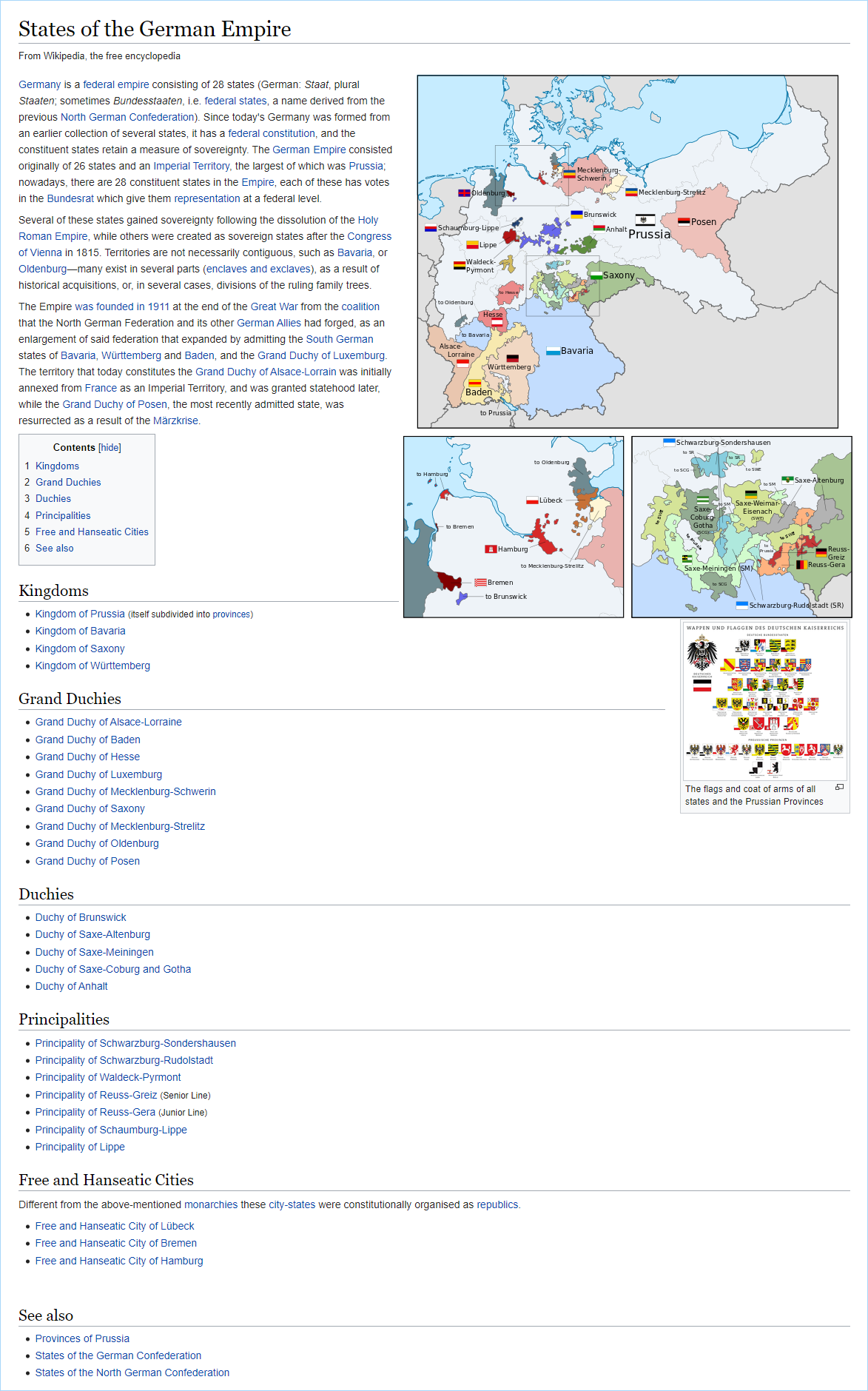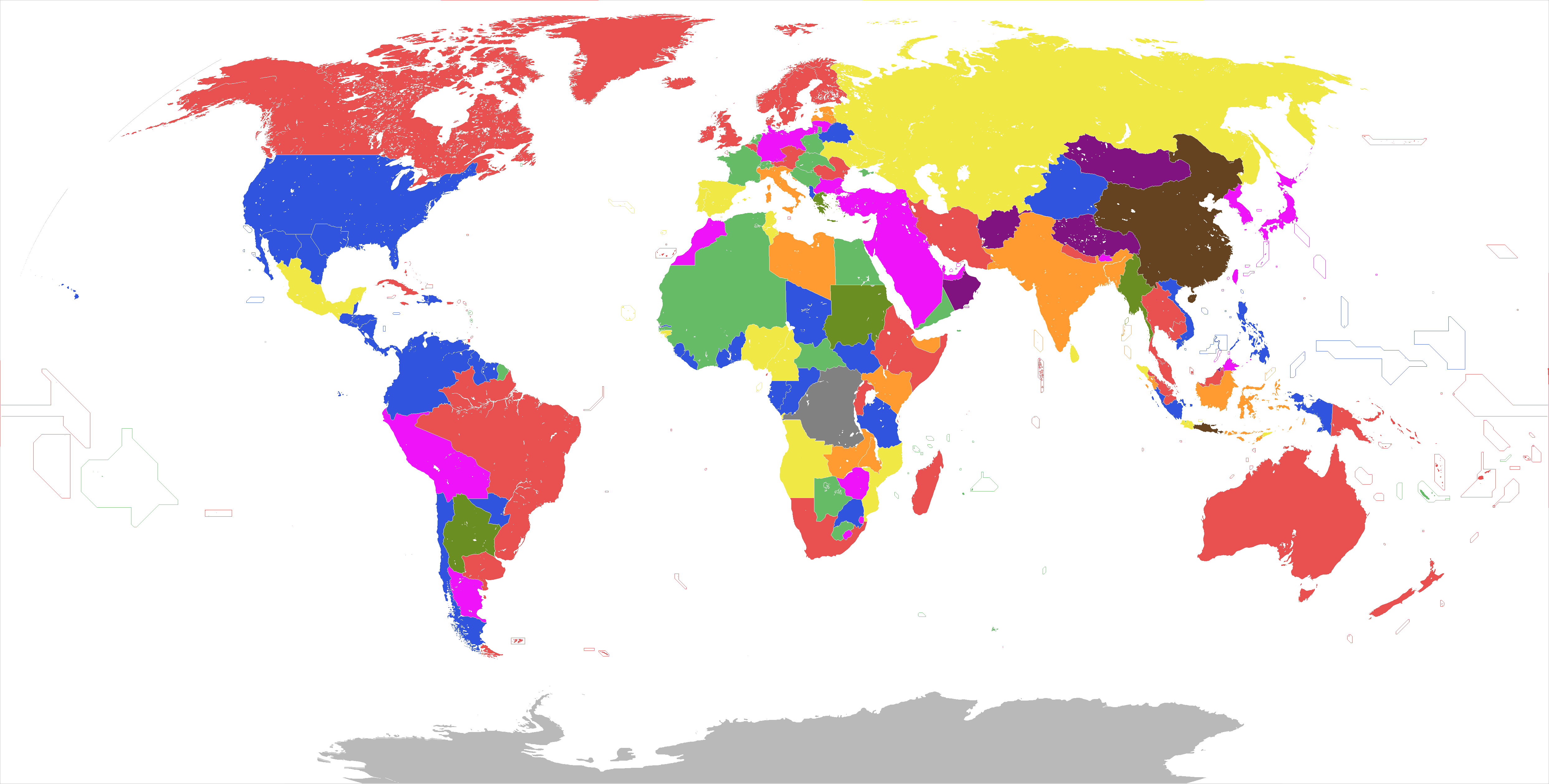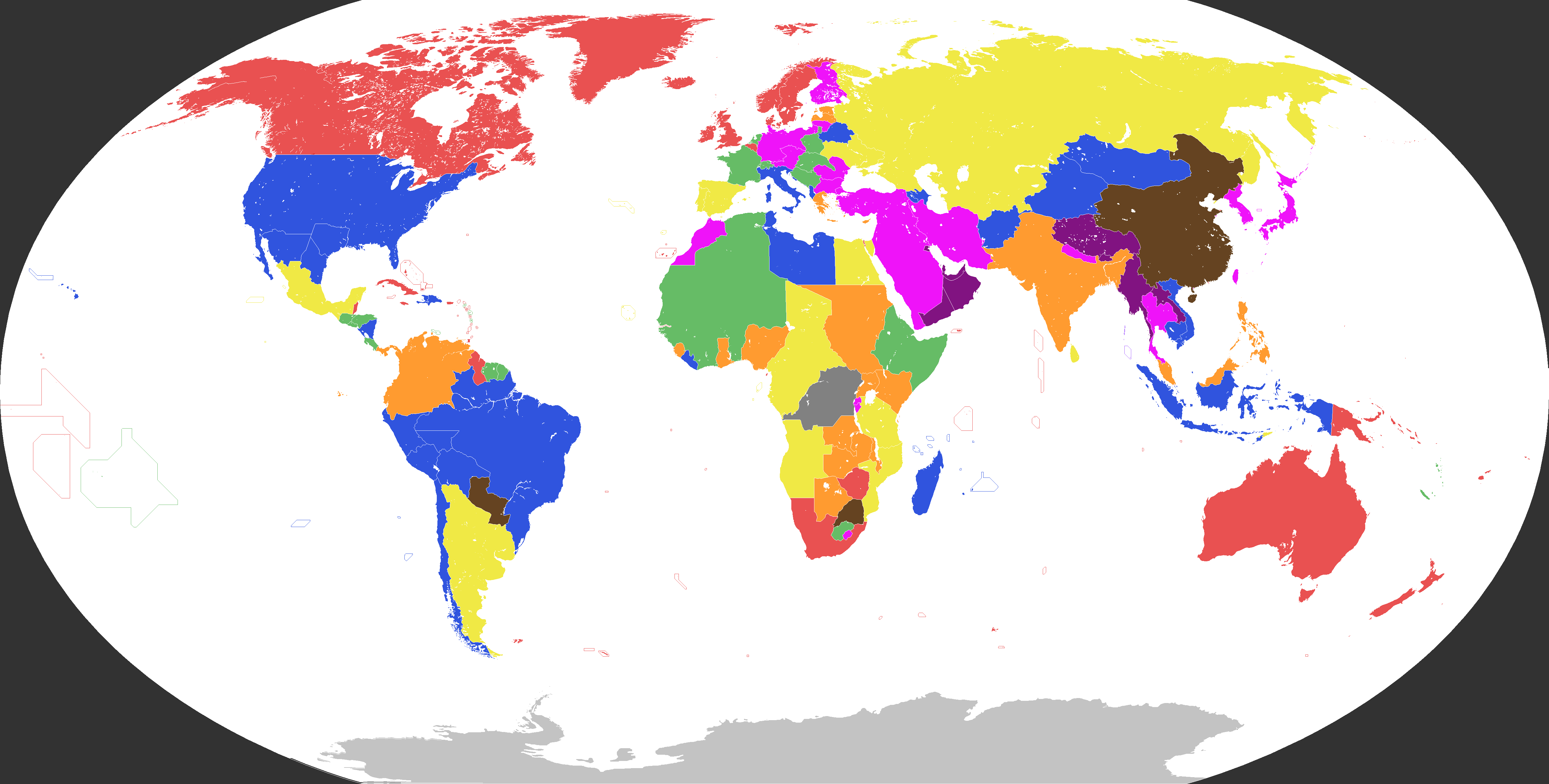You are using an out of date browser. It may not display this or other websites correctly.
You should upgrade or use an alternative browser.
You should upgrade or use an alternative browser.
Nobody Expects: The Spanish Revolution
- Thread starter Onerom
- Start date
Threadmarks
View all 72 threadmarks
Reader mode
Reader mode
Recent threadmarks
Unexpected Glimpses (III) Empire of the Americas and the Indies Basque Republic Galician War WorldA Map, 2020 Insulindian Insurgency US ancestry by county equivalent, 2020 US Census. Ethnic map of Europe, North Africa, the Near East and Russian Asia, 2022This kills the Catalans
But seriously what caused the drop in Catalan/Valancian speakers? No Catalan Renaissance? It also seems it was affected the most out of all Spanish languages,why is that so (Galician seems less spoken but not as dramatically, also for Galician, is it more or less Castillan-influenced, in writing and vocabulary than IRL).
Are there more basques speakers than IRL? It's hard to tell.
Also what's the status of both Basque and Catalan in border regions of France (as well as Occitan languages if you thought about them)?
This kills the Catalans
Not really, most of them just speak little or no Catalan. My mother wouldn't have learnt Valencian from my grandmother.
But seriously what caused the drop in Catalan/Valancian speakers? No Catalan Renaissance? It also seems it was affected the most out of all Spanish languages,why is that so
It's complex, beginning with a weaker Renaixença that never really took hold on the burgeoisie, and earlier and heavier industrialization that attracted a huge wave of Spanish-monolingual Andalusians, Extremadurans, Murcians, Aragonese, etc. that offshot migration from inner Catalonia to the Barcelonese industrial belt, and, later, Valencia.
In this Spain regionalism became tied with traditionalism and eventually monarchism (like IOTL until the 1890s-1900s), but, after the revolution, it took ractionary connotations. Rural Catalan and Basque-speaking regions evolved from traditionalist and antiliberal to reactionary, clerical and antirepublican, hot-beds of right-wing rebellion, so the consensus among most republican groups from left to centre right was jacobinism and centralism to stamp out the old order from the provinces.
The result of a century of that French-inspired policies (like Franco's policies but on steroids and with revolutionary zeal and justification) is the endangerment of non-Castilian Spanish languages, relegated to the rural world in a situation of diglossia. Most of those who use then primarly are elder people, with the youngsters having limited to none knowledge.
Galician seems less spoken but not as dramatically, also for Galician, is it more or less Castillan-influenced, in writing and vocabulary than IRL
Yes, it is less spoken than OTL but as a traditionally emigrant region, it endured better than Vizcaya, Barcelona and Valencka. Certainly, Galician, and the rest, are more Castilian influenced.
Are there more basques speakers than IRL? It's hard to tell
There are less, confined to Guipuzcoa and northern Navarra. There's no single standard (unlike our batua) and the language is generally unsuited for higher education due to the lack of technical words in many areas.
Also what's the status of both Basque and Catalan in border regions of France (as well as Occitan languages if you thought about them)?
Neither languages are official in any Spanish nor French region, but since the early 2000s in Spain areas with significant presence of a language are allowed to study it as an optional subject in school.
So, where do the Basques go?
Fishermen in Newfoundland perhaps?
More likely to Mexico I guess, also Chile, ArgentinaFishermen in Newfoundland perhaps?
So, where do the Basques go?
Fishermen in Newfoundland perhaps?
More likely to Mexico I guess, also Chile, Argentina
First to say is that most Basque people remained in the former Basque provinces, eventually assimilating and most of them consider themselves Spanish as opposed to the ones abroad who developed a colective national consciousness as a result of the trauma of war and exile, similar to the Jewish experience in the diaspora.
Of the diaspora, the initial political exiles went into New Spain (today Mexico), and most of them were resettled in Texas, New Mexico and California. Later waves of Basque immigrants spread all over Spanish America, more importantly in the new republics of the former Novohispanic northern frontier and in Argentina.
Basques and their descendents took an important part in Spanish American wars of independence, linking the fight for freedom of their adopted lands with freedom for their original homeland. In Argentina especially, Basque people were decisive in the victory of federalism over centralism in the Civil War, with the Argentinian political system borrowing heavily from traditional Basque customs such as the fueros.
Awesome!
The monarchies part are interesting, Who is the monarch of Cuba (and Puerto Rico)? I thought at first it was a descendant of Ferdinand I, who would have went into exile again to Cuba after losing mexico, but then i saw that Charlotte I died in Brazil... Could it be that Charles VI was given a ceremonial crown in cuba? Or is it a monarchy descended from unrelated local nobilities (in both case)... Or is it the British Crown?
Also surprising Rhodesia is still recognized within the british empire despite being segregationist. also how did the Netherlands become a republic?
Is the congo in a state of civil war? Or is it something even more sinister?
Are the political systems of Sonora, Texas and the Bravine Republic copied from the US'?
So if i understand it correctly, the average citizens of say, France, don't directly elect their president, despite him having signficiant power?
Also i'd love to learn more about the British Territory of Colonia
Christina I of Mexico Wikibox
Awesome!
Thanks!
The monarchies part are interesting, Who is the monarch of Cuba (and Puerto Rico)? I thought at first it was a descendant of Ferdinand I, who would have went into exile again to Cuba after losing mexico, but then i saw that Charlotte I died in Brazil... Could it be that Charles VI was given a ceremonial crown in cuba? Or is it a monarchy descended from unrelated local nobilities (in both case)... Or is it the British Crown?
They are descendants of Ferdinand I, just not by the line of Charlotte I but by her sister, Christina I and his husband Prince Anthony of Orleans, Duke of Veracruz and youngest son of King Louis Philippe of France. Charlotte was ousted from the throne in 1852 in a pronunciamiento (typical Hispanic-flavored coup) due to discontent from the Civil War, the Mexican-American War and corruption. However, the revolutionaries fell to infighting among themselves, and centralist and moderate republicans ended reconciling with monarchicals in 1854 and offered Christina the crown in 1854. Her reign would last less than a decade due to her premature death at childbirth, and her son Ferdinand would inherit the throne but during his reign the Mexican Monarchy would be definitely abolished in a new revolution. The Royal Family fled to the Caribbean territories which stayed loyal and continued to reign from Habana.
Also surprising Rhodesia is still recognized within the british empire despite being segregationist. also how did the Netherlands become a republic?
In NE, segregationism and racism are unfortunately much more acceptable to the general Western public due to the absence of both the horrors of Nazism to look to what they lead to and the Soviet Union as an international sponsor of equality among all peoples, so it's not that strange. Think about it as many Westerners being as the pre-Civil Rights average American from the South.
The Dutch Republic is the result of the instability that the Netherlands suffered in the 60s, due to the mishandling of the Indonesian Independence War that eventually led to a military coup d'etat.
Is the congo in a state of civil war? Or is it something even more sinister?
No, not a civil war, and I don't really know if it is more sinister. The State of Congo, unlike OTL, wasn't awarded to any country during the Scramble for Africa, but instead it was turned to a free area internationally administered by the Great Powers of the time (UK, France, North German Confederation, Italy, US, Russia, Austria-Hungary, Portugal despite being of secondary importance) so as to ensure the free access of bussiness from any of them. The problem, no one of them wanted to invest much in the administration for it to benefit their rivals, so the State suffered from chronical underfunding and slowly turned into an anarchocapitalist's wet dream: hardly any law and fewer enforced but for private property (if your country was willing to support you). So, as of 2019, so to speak there's not really a State of Congo but a patchwork of tribal self-organized lands, private city-states, areas under company rule, petty warlords, even fanatic strongholds... It's a mess.
Are the political systems of Sonora, Texas and the Bravine Republic copied from the US'?
Yep, they borrow heavily but are not just identical copies, they are unitary republics for example so no electoral college.
So if i understand it correctly, the average citizens of say, France, don't directly elect their president, despite him having signficiant power?
Yes, in NE that kind of organization is precisely know as a French-styled republic (republique à la française), because it's the most prominent country that uses the system and while it wasn't the first (Swtizerland?), most of those who adopted it borrowed it from France.
Also i'd love to learn more about the British Territory of Colonia
Then I'll work on it, it has its origins in the Argentinian Civil War and I wanted to dive into it. Stay tuned.
Last edited:
Interesting, so does that mean Cuba and Puerto Rico are united? Or simply recognize the same monarch? If united, what is the name of the country?
Yes, they are one country under the United Kingdom of Cuba and Puerto Rico (Reino Unido de Cuba y Puerto Rico) although Puerto Rico has an autonomous assembly for local affairs.
Yes, they are one country under the United Kingdom of Cuba and Puerto Rico (Reino Unido de Cuba y Puerto Rico) although Puerto Rico has an autonomous assembly for local affairs.
Me gusta
How is the state of affairs in that country in terms of living standards and democratic traditions? Is there significant freedom of the press, free and fair elections, etc.?
How does the monarch personally exercise power in Germany, Austria, Lithuania, Finland, Romania, the Ottoman Empire, and Lithuania?
And who are the absolute monarchs of Myanmar(?) and Laos?
How democratic are Republiques à la Française?
And who are the absolute monarchs of Myanmar(?) and Laos?
Yes, in NE that kind of organization is precisely know as a French-styled republic (republique à la française), because it's the most prominent country that uses the system and while it wasn't the first (Swtizerland?), most of those who adopted it borrowed it from France.
How democratic are Republiques à la Française?
Yes, they are one country under the United Kingdom of Cuba and Puerto Rico (Reino Unido de Cuba y Puerto Rico) although Puerto Rico has an autonomous assembly for local affairs.
When did our Dominican Republic become independent? And under what circumstances?
How is the state of affairs in that country in terms of living standards and democratic traditions? Is there significant freedom of the press, free and fair elections, etc.?
Quite well compared to OTL, the country is a constitutional monarchy with a medium standard of living and uninterrupted free elections since the 50s. Puerto Rico, being poorer than Cuba and having some delegated powers, is more prone to corruption, but not of banana republic proportions.
How does the monarch personally exercise power in Germany, Austria, Lithuania, Finland, Romania, the Ottoman Empire, and Lithuania?
It varies from country to country, and generally the more democratic the country is, the more a monarch restrains himself from going out the role he has been reduced by tradition to interfere with the institutions. In Germany, which is the prime example, the Emperor is granted ample powers in the constitution: the power to declare war and make peace, represent the Empire abroad, conclude treaties and alliances, and accredit and receive ambassadors, to convene the Bundesrat and the Reichstag and dissolve the latter, to propose Imperial laws, to appoint Imperial officials including most importantly the Reichskanzler (who is constitutionally only responsible to him), he is the Commander in Chief of the federal army... Despite all these, institutional tradition since the 1920s has been for the Emperor to follow the Reichstag's initiative except in dire situations.
The other countries, all with their own circumstances, generally follow the German model and, in the Ottoman case, the sovereign is also Caliph of Islam and as such wields a considerable power over Muslims.
And who are the absolute monarchs of Myanmar(?) and Laos?
Taw Phaya of Burma and Soulivong Savang of Laos. As you can see, monarchies are more common in NE, and in this two cases, they are Western-allies intended as bulwarks against Chinese anticolonialist influence.
How democratic are Republiques à la Française?
Varying, from the quite exemplar Dutch Republic to the banana republics of Central America and everything inbetween. They tend to be more oligarchic than other types, but less prone to populist waves too.
When did our Dominican Republic become independent? And under what circumstances?
Similarly to OTL, in the 1840s after a period under Haitian occupation.
States of the German Empire
I'm still working on Argentina but it's been (and will continue to be) a complicated week, so in the meanwhile I leave you this little piece.




Threadmarks
View all 72 threadmarks
Reader mode
Reader mode
Recent threadmarks
Unexpected Glimpses (III) Empire of the Americas and the Indies Basque Republic Galician War WorldA Map, 2020 Insulindian Insurgency US ancestry by county equivalent, 2020 US Census. Ethnic map of Europe, North Africa, the Near East and Russian Asia, 2022
Share:


